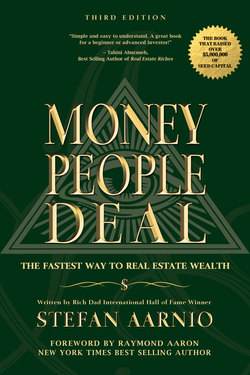Читать книгу Money People Deal - Stefan Aarnio - Страница 48
На сайте Литреса книга снята с продажи.
ОглавлениеMoney people deal
46
a. The variability of returns from an investment.
b. The chance of nonpayment of a debt.
All of the definitions above involve some form of loss, hazard, suffering, and an element of variability, probability, or chance. What I find intriguing about risk is that every single person I meet has a different subjective definition. Often, when I am discussing risk with another investor, I will ask what their personal definition of risk is. More often than not, investors will define risk as the chance or probability that they lose on an investment. This common definition is sufficient, but I find it to be an unsophisticated definition because it does not address control.
Robert Kiyosaki, author of the Rich Dad Poor Dad series of books, says that intelligence is the ability to make distinctions. The more distinctions we can make, the more intelligent we are. For example, there are over 7,500 variations of apples in the world. When it comes to apples, I am unintelligent and can only name a few variations: Red Delicious, Granny Smith, crab apples, and Macintosh. A person who can name one hundred variations of apples is much more intelligent than I am on the subject of apples. When I hear a person’s definition of risk, I can immediately find out what their sophistication level is when it comes to business and investing.
My personal definition of risk has changed many times throughout my life. I used to believe in luck, and now I do not. All I believe in is actions performed and numbers. Life and business are a numbers game; if you can produce the volume and hit the numbers, you will succeed every time. There is no luck.
My definition of risk is an inventory of the elements that are under your control compared with an inventory of elements that are out of your control.
Ask yourself, Am I comfortable with my degree of control? If you are comfortable, then you may proceed with the risk. If you are not comfortable with the degree of control, then do not proceed.
My definition of risk has two primary distinctions that the average definition does not:
